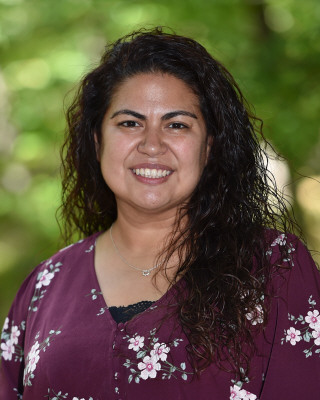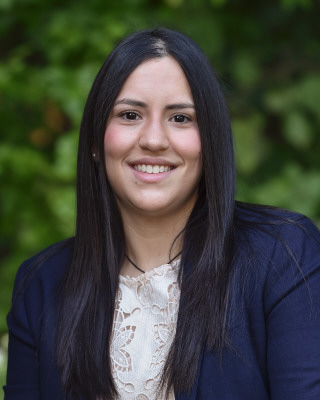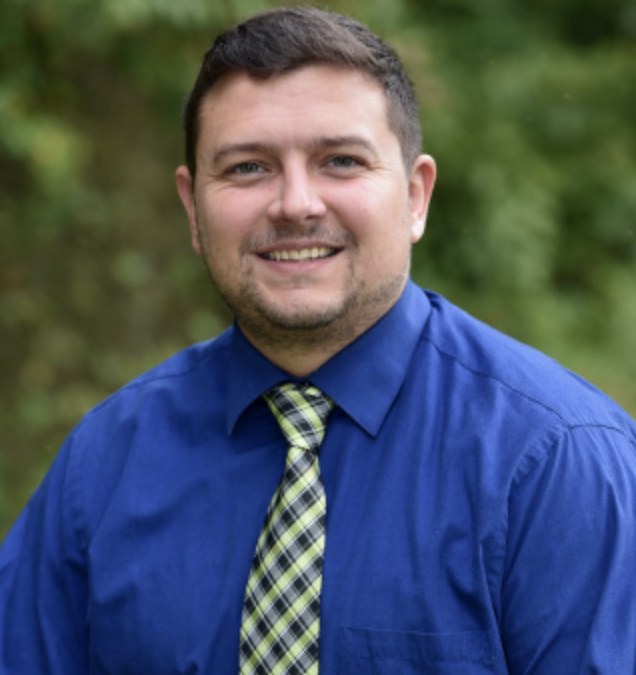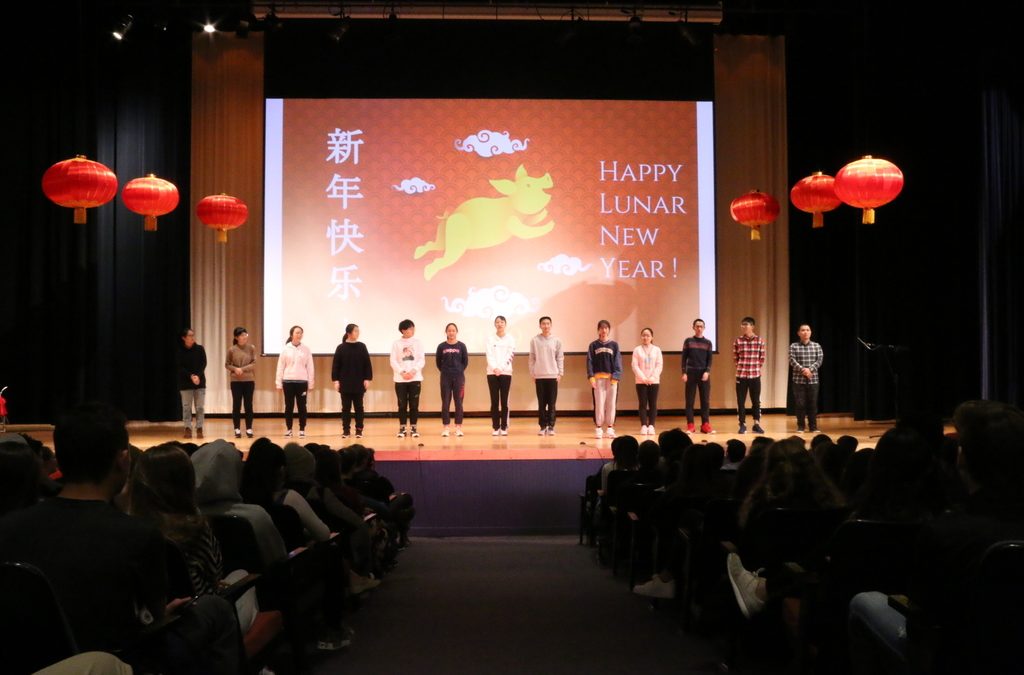
Dec 1, 2020 | Eva Schiller, Opinion
By Eva Schiller (V) When I heard of Supreme Court Justice Ruth Bader Ginsburg’s passing, I immediately took to Instagram. My first post was a simple black screen with white letters: “RIP RGB. A legend.” Trust me, I know . . . In my haste, I had instead memorialized “Ruth Gader Binsburg.” Oops. Minutes later, I reposted a Tweet frantically wondering whether President Trump should be allowed to nominate her replacement.
Looking back, it isn’t hard to find the flaws in my actions. After a single pathetic attempt to recognize the value of her life, I dove immediately into the political implications of her death, and I’m not the only one. Of the hundreds of Instagram stories I tapped through that night, the vast majority were about the vacancy she had left. Painfully few gave proper recognition to the incredible space she had filled during her career. Is this woman – who is a feminist icon, who fought relentlessly for a chance to succeed, who gave her entire adult life in service to future generations of Americans – worth so little? Of course not.
I’d prefer to believe that in the sheer panic and emotion of the moment, staring down a loss that could impact our political environment for decades, we were thrown off balance. Our fear-driven self-preservation instincts emerged, and we forgot that it was not only a Justice we had lost, but a human.
While unacceptable, our lackluster response is understandable. Over 200,000 people have died from COVID-19 in the U.S, and the murders of innocent Black people have been shared across social media; Migrants are dying in camps on our borders, and Uyghurs are dying in camps abroad. Justice Ginsburg was a Jewish woman – there was a record high of 2,107 antisemitic hate crimes in 2019 according to the Anti-Defamation League. Each of these causes is crucial and demands our attention, but our increased awareness comes at a cost: when I say I feel myself becoming a bit desensitized to death, I don’t think I’m alone. It feels more comfortable to forget to mourn and instead turn to face problems that affect the living. In the case of RBG, this meant forgetting to celebrate her accomplishments and instead focus on her death’s repercussions.
With all of that said, we do not have to continue this way. We can acknowledge the political changes brought about by Justice Ginsburg’s death but still take the time to honor her life properly. With this in mind, I deleted the ‘Gader Binsburg’ post and the frantic tweet and began thinking of ways I could properly process the death of one of my idols. I admit it’s a difficult task: the “Notorious RBG” deserves more than even the most reverent Instagram reposts. Yet, sitting in my room with only a phone, laptop, and page-long to-do list at my disposal, I have little else to offer.
So, what next? I believe that the best we can do is try to learn from her words and incredible career. I’ll start us off with three examples.
First, on the direction of women’s rights: “Women belong in all places where decisions are being made. It shouldn’t be that women are the exception.” Justice Ginsburg believed that workplace equality stemmed from educational equality and reproductive rights; She argued against excluding pregnant women from the workplace and helped determine that schools funded by taxpayers couldn’t bar women. She has also been a powerful advocate of the Supreme Court Case Roe. v. Wade and equal wages. While her accomplishments for women are incredible, her legacy is in our hands: if we don’t continue pushing for abortion rights and workplace equality, we will quickly lose momentum.
Second, on dissenting: “The greatest dissents do become court opinions, and gradually over time their views become the dominant view. So that’s the dissenter’s hope: that they are writing not for today, but for tomorrow.” In our increasingly divided government, there is significant pressure to fall in line with the party’s ideals and save ‘radical’ ideas for less tumultuous times. As Ginsburg’s message of dissent suggests, I don’t think that ‘settling’ – whether that be for former Vice President Biden or President Trump – means shelving those discussions entirely: we can accept the situation of today, but continue to argue progress for tomorrow.
And third, on nonpartisanship: in her tribute to the late Supreme Court Justice Antonin Scalia, she says, “We disagreed now and then, but when I wrote for the Court and received a Scalia dissent, the opinion ultimately released was notably better than my initial circulation… It was my great good fortune to have known him as a working colleague and treasured friend.” Ginsburg’s willingness to see the human behind the opposing political opinion is reminiscent of Pingry’s stance on political discussions: that we have much to gain from listening to the other side. I too believe that as long as our political differences do not involve hatred or discrimination, Ginsburg’s friendship with Scalia is a powerful model to follow. By engaging in discourse, we stand to learn about each other’s perspectives and refine our own; after all, democracy cannot exist in an echo chamber.
So yes – write tweets, post Instagram stories (and check for typos!), be vocal about your concerns, and rally for change, but do not forget to look back and appreciate all that trailblazers like RBG have already accomplished. There is much to learn.

Nov 10, 2020 | Eva Schiller, New Faculty
By Eva Schiller (VI) The Pingry College Counseling Office is thrilled to welcome Cynthia Santiago to their team!
Mrs. Santiago graduated from Muhlenberg College in 2001, with a Bachelor of Arts in Psychology. She later joined the Muhlenberg Admissions staff, where she served as Senior Associate Director of Admissions and Coordinator of Multicultural Recruitment.
When asked what inspired her to switch to college counseling at Pingry, Mrs. Santiago explained, “I recruited for Muhlenberg at Pingry. I always loved my time coming here and held in high regard the students that I would meet here. So when it came time to think about leaving admissions, it was important for me to find a place that had a good community, and Pingry fit that bill!”
Now a few months in, Mrs. Santiago has made herself an integral part of the community. In addition to co-advising with Mrs. Morales of the Admissions Office, she has gotten involved with Pingry’s Latinex Affinity Group. “I’m open to any other opportunities!” she added, smiling. In the coming weeks, she hopes to “get to know as much as possible,” despite the various challenges that COVID-19 is posing.
When she’s not at Pingry, Mrs. Santiago has plenty of hobbies to keep her busy. “I crochet, and if I’m not doing that, I also spend time with my family,” she remarks. “I’ve got two little ones, and we do bike riding, hiking, and other outdoor activities as much as we can.”
Describing her experience thus far, she exclaimed, “I love it! It’s been great! Everyone is so friendly and very welcoming, and I love that I’m part of the community.” She would also like to remind the student body one last thing: “My door is always open!” Welcome to Pingry, Mrs. Santiago! We wish you the best.

Nov 10, 2020 | Eva Schiller, New Faculty
By Eva Schiller (VI) This year, the Lower School Faculty is welcoming Ms. Gabriela Reyes as a K-3 Spanish teacher!
Ms. Reyes attended Universidad Metropolitana in Caracas, Venezuela, where she received a Bachelor’s Degree in Education. Since then, she has obtained five years of hands-on teaching experience, including her most recent position as a Lower School Spanish Teacher at Leman Manhattan Preparatory School. Speaking on her past experiences, Ms. Reyes said she has “had the incredible opportunity of instructing a diverse group of students, as well as working extensively in several school settings.”
At Pingry, her “main objective includes engaging students with various learning needs through enhancing their Spanish skills in the advanced level of proficiency in speaking, reading, writing and listening.” She also hopes to “help students fulfill their potential, support the development of a new language in children by offering new working strategies,” and help her students “understand and appreciate the cultural diversity.”
Outside of the classroom, Ms. Reyes has a variety of hobbies and interests. “I love outdoor activities, especially playing volleyball at the beach, cooking, and baking cakes to share quality time with family and friends,” she remarks. She is also a fan of Harry Potter.
Welcome to the community, Ms. Reyes!
Jun 7, 2020 | Eva Schiller, School News, Sidebar News
By Eva Schiller
On April 27th, in the midst of remote learning and stay-at-home orders, a few STEM-oriented Pingry students staved off quarantine boredom by participating in the Delbarton Digital Science Fair. Complete with expert judges, including IRT mentor Dr. Sparrow, the remote fair allowed hundreds of students to show off their research for the year, attend a panel, and even win awards, all without leaving their homes.
William Li, a Delbarton junior who helped organize the event, explained its inspiration: “last year, we organized our first Delbarton Science Fair,” he says. “When the whole state went into lockdown, we transitioned to a digital platform.” However, Li realized that students at many other schools were unable to exhibit their research. “When we learned that other schools were canceling their physical science fairs,” he added, “we expanded that platform to include all NJ schools. I myself have done high school research, so I know the amount of work and passion that goes into it. We just couldn’t let that type of work go unexhibited and unrecognized.”
In addition to helping NJ students get recognition for their research, the fair had a positive impact on the broader community. “All the prize money and fair sponsorships have been given directly to charities or as credit to businesses impacted by COVID-19,” Li said.
With Pingry’s annual Research Exhibit cancelled, the Delbarton Digital Science Fair represented a second chance for Pingry students to practice speaking about their projects and get expert advice. Although many IRT groups had to leave their experiments unfinished, some had collected enough data throughout the year to share their projects. Three IRT projects were presented at the fair: “Shallow Mind”, “Drone-Rover Communication for Pathfinding”, and “The Effect of KIF11 Activity on YAP Localization.” In addition, one Pingry student participated with individual research.
Overall, Pingry’s experience at the event was overwhelmingly positive. “I was impressed by the breadth and depth of science presented. A number of Pingry students were involved, which was great to see,” Dr. Sparrow noted. Li agreed: “I’m very happy that Pingry participated in the fair this year,” he said. “You guys really have a renowned Research Program, and learning about its successes was a big reason why I decided to found the Research Club at Delbarton. It was really wonderful working with you all on this, and I look forward to more collaborations in the future!”

Apr 18, 2020 | Eva Schiller, Opinion

By Eva Schiller (V)
A metapoem is a poem about poetry. The poem, somehow, has crossed the fourth wall and recognized itself as a sequence of words and letters. It can then evaluate itself, and even criticize itself. Think of this article as something of a meta-article: an article about articles. Specifically, an article about the credibility of the Pingry Record. Are we openly and accurately reporting Pingry news, or have we––as my title indicates––gone soft?
Perhaps I should clarify what it means to “go soft.” I define it as ignoring relevant topics for the sole purpose of avoiding controversy and protecting the Pingry ‘brand.’ I should also clarify that the Pingry Record is not, nor has it ever been, an organ of the administration. All content and all editorial decisions come from students and faculty advisors. As Dean Chatterji informed me, “the administration does not provide input into what the Record covers.”
Nonetheless, based on issues from the last fifteen years, the Pingry Record is undeniably more conservative than it used to be. The following are examples of controversial and problematic topics found in old issues, all of which I believe are not appropriate for a 2020 issue.
1. An opinion piece called “The Real Zero Tolerance Policy,” which appears on page three of the January 2003 issue. The article, which is publicly available on the Pingry website, discusses racial issues at Pingry, as well as political correctness and racist politicians. It takes just one quick skim of the article for a modern day reader to spot multiple points of contention. In addition to its subject, the piece includes biting quips about racial inequality, as well as racist statements (written ironically) and uncensored racial slurs. Clearly, this is in no way acceptable for a 2020 issue, nor should it be. However, it certainly demonstrates just how significantly the culture of Pingry, and by extension, the Record, has changed in past years.
In addition to publishing controversial articles, older issues of the Record report a coarser version of Pingry news.
2. The April 2004 issue dedicates a front page headline to the news that “Financial Aid Funds Will Not Meet Students’ Need.” An editorial on page two, and two additional articles on page four further explore the problem and criticize the “moral message… the school [is] sending if qualified applicants cannot attend Pingry due to financial need.”
3. The April 2004 issue also includes a rather harsh letter from former Assistant Headmaster Adam Rohdie, who “…ask[ed] the editors to rethink what is at the core of Pingryʼs Honor Code.”
3. The April 2009 issue includes a student interview featuring expletives and a joke about anorexia (in response to the question: “Mary Kate or Ashley”).
It is important to note that the aforementioned cases are not consistent with every single article and issue published during these years. As Student Body President Brian Li (VI) noted, “the content of the paper ebbs and flows as leadership transitions from year to year.” However, I chose to highlight the most controversial articles because they set the previous limitations of the Pingry Record. Topics that were once considered in bounds are now considered out of bounds, making it difficult to deny that the Record has developed into a “softer” establishment.
This could be due to a number of reasons: cancel culture, increased awareness of diversity and inclusion, and rising political polarity have found their way into Pingry and beyond within the last ten years. As a result, we all have to be more conscious of how our actions affect others, and the Record has come to reflect that. Just this year, the editorial staff took steps to ensure that our opinion remained neutral on difficult topics such as teacher-student relationships. As an editor, I can attest that other hot topics––TikTok Honor Code violations and racial slurs still floating around on campus––are also, by some unspoken rule, not within the bounds of Record material (ironically, in mentioning them, I run the risk of crossing that boundary).
That said, a softer Record is not necessarily a bad thing.
The internet age puts us all in the spotlight, amplifying the impact of small actions that would have gone unnoticed pre-social media. This makes the new decade a difficult time for daring or accusatory articles. A kinder and gentler Record could perhaps indicate that “students are more considerate of the community, and how their words might impact those around them,” Dean Chatterji points out.
Of course, I in no way advocate the curses, racial slurs, and insensitive comments I found in older issues of the Record. However, the candor of the content I cited, despite fostering controversy, did increase its appeal and create a genuine time capsule of the Pingry community. I respect those articles for their openness. At the end of the day, the Record staff has the power to impact the opinions of the Pingry community, and if we can’t discuss hard topics openly, nobody will. Thus, as an editor, I feel it is our responsibility to learn from past articles and recapture their candor, while still retaining a higher level of cultural respect. If we do so tactfully, we could paint a more raw and genuine picture of Pingry.

Feb 25, 2020 | Eva Schiller, Meghan Durkin, School News
By Vicky Gu (VI), Meghan Durkin (V), and Eva Schiller (V)
On Friday, January 31, Form V and VI students attended Pingry’s annual Career Day, in which they were able to interact with a wide variety of Pingry alumni and gain insight into future career options.
The event began with a keynote presentation by Dr. Jennifer Weiss ‘89, who spoke to students about her unique position as one of the few women who specializes in orthopedic surgery. After the keynote, students dispersed and were able to attend three career panels––two chosen before the event, and one that the student could decide that morning. Each panel was led by two or three Pingry alumni involved in a specific career––among the careers featured were law, media and communications, and medicine. Students had the opportunity to ask the alumni questions about their education, career paths, and projects, as well as general life questions.
At the end of the school day, after speaking about her profession, talking to students, and participating in numerous panels, Dr. Weiss was interviewed by the Pingry Record Staff. The following are excerpts from our conversation.
How did Pingry prepare you for the world of orthopedic surgery and sports medicine?
I found Pingry to be more rigorous than college and medical school. My teachers [Mr. Lavalette, Mr. Grant] took an interest in where I thought my limits were, and pushed me past my limits. It is a place where I went from being a shy rule-follower to being proud.
How did you become interested in orthopedic surgery/sports medicine?
My dad was an orthopedic surgeon. Then, I had a funny route: as I got older, my dad was really excited about me being an orthopedic surgeon, so I got really unexcited about being an orthopedic surgeon. But, when I did my orthopedic rotation, I fell in love with it.
What attracted you to a male-dominated specialty?
I was very comfortable with a group of my friends who were boys from a very early age. I believe that I grew up in a bantering environment, so when I came into the world of orthopedics, not as my father’s daughter, but as a medical student, I was comfortable with the way people spoke to each other. I fell in love with it socially.
What do you think was the most challenging part in your entire career path?
It was my second year of being a resident. The newness had worn off. It’s like when you’re going on a long run, the middle miles are the most tiring. The second year, I thought, is this ever going to be over? The fatigue set in mentally and physically.
What is the biggest challenge you face on a day-to-day basis?
I struggle with maintaining perspective of how privileged I am to have a healthy family, to have a job that I love, and that I can send my kids to a good school. I still get lost in the weeds because I want everything to be better and more perfect.
How have you balanced your family life with your professional life? What was it like when you first had children?
I like the phrase work-life integration. I brought my kids with me today, and I will try to bring one of my three kids to each meeting with me. My son mountain bikes with me. Lila will do her homework, and I’ll be in the room on my computer next to her.
What would you like to tell the greater Pingry community?
I want the people in this community to know how the Pingry family and the alumni network is extensive. People are open with their time and hearts through this connection. It’s gonna be there for you.

Oct 18, 2019 | Eva Schiller, Faculty + Staff
Eva Schiller (V)
As the new school year begins, Pingry is extremely fortunate to welcome Dr. Zachary Wakefield to the History Department. He attended Juniata College, where he earned a Bachelor’s Degree in history. He then went on to earn his M.A. and Ph.D at Auburn University, both in history as well. Prior to joining the Pingry community, he spent four years working as a history teacher and coach at a boarding school.
At Pingry, Dr. Wakefield is teaching three World History 9 classes and one AP US History Class, where he has already spearheaded some of his unique classroom practices. These include placing phones in a basket at the start of class, as well as taking paper notes instead of electronic notes. When asked how these tactics benefitted the classroom environment, it all came down to keeping students focused: “People have been conditioned to pick up their cell phones or check social media as soon as they get a notification,” he explained. “I get that, so rather than me getting upset and disrupting class, I like to just take it out of the equation.”
In addition to the techniques he has brought with him, Dr. Wakefield wants to try new methods and expand his horizons. “My goal for the school year is just to get out of my comfort zone, teaching-wise, and maybe try more student-driven activities,” he said. He would also like to attend a number of academic conferences. After his first month at Pingry, he is optimistic: “The students are smart, and they keep me on my toes,” he said laughing. “They’re pushing me, which makes for a really good classroom environment.” He also enjoys the vibrant atmosphere, as well as the rural setting. “I love the area; it reminds me of where I grew up,” he remarked.
In keeping with his passion for history, Dr. Wakefield’s hobbies are quite worldly. When he’s not teaching, Dr. Wakefield loves being outdoors, whether that be hiking or going to the beach. He is also an avid reader and traveler.
Being a new teacher can be intimidating, but Dr. Wakefield is ready to rise to the occasion. “Even though I’m starting at a new school, which is challenging, I’m going to try my best to grow as a teacher and achieve my goals,” he stated. Good luck, Dr. Wakefield!

Oct 18, 2019 | Eva Schiller, Faculty + Staff, Featured, Meghan Durkin, School News
Eva Schiller (V), Vicky Gu (VI), Meghan Durkin (V)
Though the Pingry community has known his name for almost a year now, Mr. Matt Levinson has just begun his first academic year as our new Head of School. Following a five-month search and a unanimous vote from the Board of Trustees, Pingry officially welcomed its sixteenth Head of School on July 1, 2019, succeeding Mr. Nathaniel Conard’s 14-year tenure as Headmaster.
The role of the Head of School has long been ambiguous to many Pingry students. Mr. Levinson explains his job as keeping “everybody focused on the student experience… from myself, to all administration, staff, and teachers,” and that “every day is different. There are a lot of interesting challenges that cross my desk, problems to solve.” He remarked, “But also, being out in the community, being out in classes, being out at games, is really important.”
When asked what drew him to Pingry, Mr. Levinson immediately responded, “the Honor Code was a first appeal… The trust that’s inherent in having an Honor Code is really meaningful to me.” Pingry’s inclusive atmosphere was also attractive. “Commitment to diversity and inclusion is really important to me, personally and professionally,” he says, adding, “I’ve been really struck and impressed by Pingry’s diversity and how it strengthens and enriches the community.”
Beginning his career teaching both middle and high school students, Mr. Levinson has stepped into many roles within school communities, whether that be coaching sports or serving as a dean of students. He believes that his experience allows him to “understand everything that goes into running a big organization like Pingry.”
Despite his extensive experience with education, he confessed that in high school, he was not always “as engaged as [he] should’ve or could have been, but something just kind of kicked in senior year and a couple teachers really inspired [him].” During his time at Pingry so far, he has noticed “how much [the teachers] are inspiring to you all.”
When asked about his vision for Pingry, Mr. Levinson left his response open-ended. Rather than only him deciding where Pingry should go in the upcoming years, he thinks that everyone should have input and “that the vision question is something we all need to invest in and work on together.” However, he does have a “strategic plan focusing on global education, student wellbeing, interdisciplinary learning… and also to promote teacher growth and development.”
His first step is to address student wellbeing with the hopes of helping the community “improve and be attentive.” So far, he has met with peer leaders and teachers, and plans to do some staff training in November.
Speaking on the Pingry community, Mr. Levinson noted that “everyone’s been incredibly welcoming, which has been wonderful.” He has visited classes on both campuses and gone to games in order “to get the chance to see the student experience.” What amazed him since his arrival was the “long history of people who invest their lives here. I think everyone here is trying to always get better, no one’s standing still, which I love about the community”.
Mr. Levinson also revealed that the process for getting “Shorts Days” begins with students. A student emailed him one evening asking to allow shorts the next day, and by the end of the night, Mr. Levinson had confirmed one. “I know,” he says, “on a hot day, when there’s no air conditioning, it’s nice to be able to wear shorts.”
Speaking of air conditioning, will Pingry ever get it? “That’s a big question I’m hearing; lots of people want to talk about that, but I don’t have an answer to that yet. It could happen. I don’t know when, but I know it’s something that people, especially in the 90-degree weather, are very interested in.” Perhaps someday.
Mr. Levison concluded, “I would just like to say I’ve been so impressed with the students in this school. The engagement in the classes that I’ve seen, from kindergarten all the way through 12th grade, makes it clear that the kids here really like learning and want to learn, and the teachers are really invested in making that happen.”

Mar 24, 2019 | Athletics, Eva Schiller
By Eva Schiller ’21
The girls’ ice hockey team, led by captains Clare Hall (VI) and Sophia Smith (VI), has powered through the season to finish with six wins and eleven losses. Despite having only thirteen members and facing large, competitive teams, the team has stayed resilient, and in the end, made it all the way to the MSU league semifinals. Although they unfortunately lost to Chatham-Madison, the team is new to the league, which makes their success in the tournament impressive nonetheless.
Perhaps more important than their record is their energy and how close they are as a team, both of which can be attributed to their relatively small size. “We’re always really supportive,” team member Anushka Agrawal states (IV). They are also very excited for success in the future. As Co-captain Clare Hall says, “Although the team was small this year and will be losing two seniors, we hope that many girls join next year and that the team has a successful season!”

Mar 24, 2019 | Eva Schiller, School News
By Eva Schiller ’21
On the first day of Chinese New Year, Quzhou(衢州), China, was filled with warmth and gaiety. School and work went on break as people returned home to their families and celebrated the coming of the new year. But for twelve students from Quzhou Number 2 High School, the first day of Chinese New Year meant saying goodbye to their families and boarding a plane to the other side of the world.
On the evening of February 5th, these students landed in Newark, New Jersey and were welcomed by Ms. Yi Hao, Pingry Chinese teacher, and several Pingry host families. Over the next week, they explored foods, activities, and places that highlight American culture. On the Pingry campus, this included visiting the lower school, observing Chinese classes and speaking with the students, hiking to Pingry’s green campus features, and watching school sporting events. The twelve students and their English teacher even sang a beautiful medley of American and Chinese songs at the Lunar New Year assembly.
Outside of Pingry, the host families were tasked with planning their guest’s activities. These included, but were not limited to, shopping in New York City, skiing, visiting famous museums, and trying fro-yo and Chinese takeout. In fact, many of the students had a delicious taste of apple pie (an American classic!) during their stay. These activities were truly the highlights of the exchange, as the students got to “see the similarities and differences in American and Chinese teen culture,” according to Monica Chan (IV), one of the host students. By showing their guests how to eat toast (use your hands, not a fork), use Snapchat, and bowl, the hosts discovered the joy “of introducing someone to a new culture, and watching them grow as they try new things,” in the words of Guan Liang (IV).
Although the Chinese students are all studying English, the exchange also encouraged Pingry students to work on their Chinese skills and reach across language barriers to connect with their guests. Alex Strasser (VI) commented, “Hosting has been an amazing experience for me, and it has reinforced my desire to study Chinese language and culture in college.”
Although the Chinese students were only here for one week, they formed loving, lasting relationships with their host families. At the farewell dinner, each guest and host made an impromptu speech about their experiences, and how they would “remember it all, forever,” according to JiaYi, the guest of Eva Schiller (IV). Tears were shed by both hosts and guests during the event as they reminisced about the week and reminded one another to keep in touch. Many of the speeches also included a heartfelt thank-you to Ms. Hao and Mr. Jeff Jewett for their hard work and time spent planning.
After leaving Pingry, the students visited tourist spots in Washington D.C. and New York City, sending photos to their host families along the way. Monica Chan’s guest, Ming, described the exchange best: “Good food, good people, and I had a wonderful time!”









